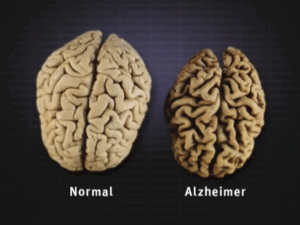Advanced analytics, insights, injury prevention, and strategies driving peak performance.
In the world of elite sports, even the slightest edge can be the difference between standing on the podium and finishing outside the medal count. Olympians break world records every year, pushing human performance to its absolute limits. The power of big data comes into play when breaking these world records. Big data refers to the vast and complex datasets generated from various sources, such as wearable sensors and performance tracking systems that require advanced tools and techniques to analyze (3). By leveraging vast amounts of data, athletes and their coaches can make informed decisions about training routines, recovery strategies, and competition preparation. Big data is revolutionizing how Olympic athletes train and helping them achieve peak performance on the global stage.
One of the most significant ways big data supports Olympic athletes is by enabling them to train more effectively by giving them highly personalized training plans (2). Rather than relying on general fitness routines, Olympic coaches and sports scientists now use data collected from various sensors and video analytics to fine tune athletes’ workouts (1). Wearables like heart rate monitors, GPS trackers, and accelerometers provide detailed insights into an athlete’s physical activity, tracking everything from distance covered, to sleep quality, and everything in between (2).
This data helps tailor training programs uniquely to the needs of each Olympic athlete. For instance, swimmers can use data on stroke rate, stroke efficiency, lap times, and form to refine their technique (5). Sprinters can analyze data on stride length, acceleration, and energy output to enhance performance (3). By constantly adjusting their training based on real-time feedback, athletes can maximize their gains and ensure that every workout contributes to their overall success.
Injury is one of the biggest threats to an Olympic athlete’s career, and big data is proving instrumental in keeping athletes healthy. Biomechanical analysis, driven by data from motion capture systems and sensors, allows trainers to detect early signs of injuries from overuse or stress (4). This kind of predictive analysis and analytics helps athletes adjust their training loads before a serious injury occurs, reducing downtime and keeping them on track for competition.
Data can also guide recovery protocols. After an injury, Olympians can wear devices that monitor muscle function, range of motion, and other recovery metrics. Based on this data, physical therapists can adjust rehabilitation exercises and track progress in real time (4). For example, by analyzing how an athlete’s body responds to specific treatments, the recovery process can be accelerated safely (1). This allows Olympians to return to training sooner and with a reduced risk of reinjury.
Big data also plays a vital role in helping Olympians prepare for the psychological and strategic aspects of competition. Athletes can analyze past performances to identify strengths and weaknesses of both themselves and their competitors (2). Machine learning algorithms can sift through years of competition footage to discover patterns in an opponent’s tactics or reveal subtle shifts in an athlete’s performance under specific conditions (3).
Big data has become a game changer in how Olympic athletes train, offering insights that allow for personalized, data-driven approaches to physical and mental performance. By optimizing training routines, preventing injuries, enchanting strategy, and improving mental resilience, big data is helping athletes reach new heights of excellence. As the capabilities of data analytics continue to evolve, the futures of Olympic athletes and their training promises even greater precision, making the pursuit of gold more achievable than ever before.
Citations –
- Data Sleek. (n.d.). Data analytics gets the gold medal at the Paris 2024 Olympics. Data Sleek. https://data-sleek.com/data-analytics-gets-the-gold-medal-at-the-paris-2024-olympics/#:~:text=Data%20analysis%20of%20time%20splits,injuries%20by%20identifying%20overtraining%20patterns
- Marr, B. (2016, August 9). How big data and analytics help athletes win Olympic gold in Rio 2016. Forbes. https://www.forbes.com/sites/bernardmarr/2016/08/09/how-big-data-and-analytics-help-athletes-win-olympic-gold-in-rio-2016/
- Data Sports Group. (n.d.). Big data’s sensational role in strategizing Olympic sports. Data Sports Group. https://datasportsgroup.com/news-article/65855/big-datas-sensational-role-in-strategizing-olympic-sports/
- PathWise. (n.d.). Elliot Schwartz. PathWise. https://pathwise.io/podcasts/elliot-schwartz/
- Olympics. (2023, September 29). Carolina Marin: Big data science gives Olympic champion the edge. International Olympic Committee. https://olympics.com/en/news/carolina-marin-big-data-science-olympic-champion-edge
- Nature. (2024). The gold standard: Big data at the Olympics. Nature. https://www.nature.com/articles/d41586-024-02427-0






Comments are closed.